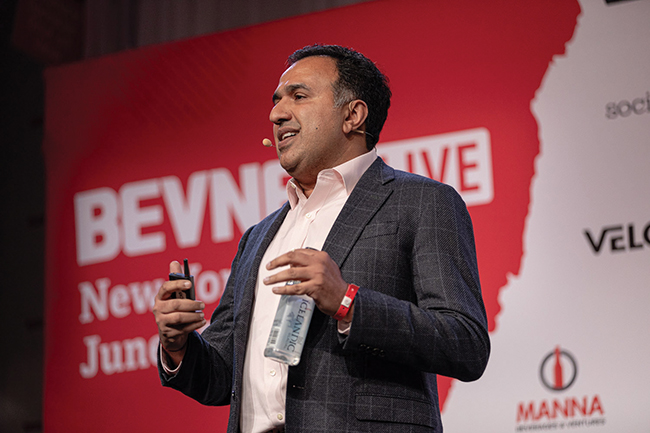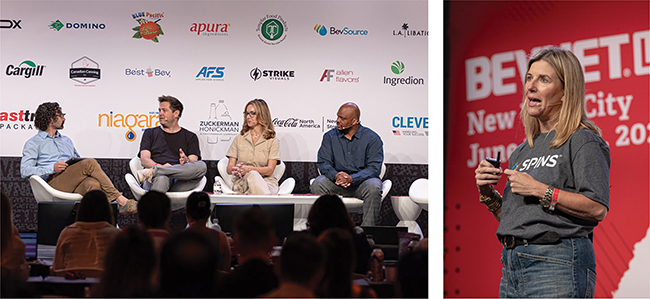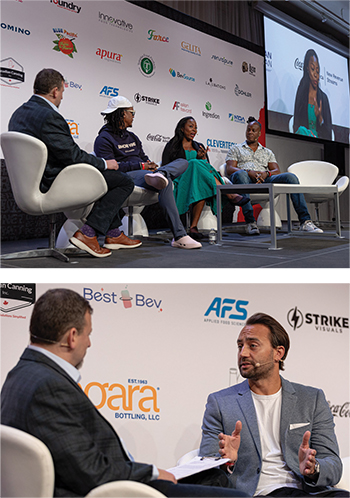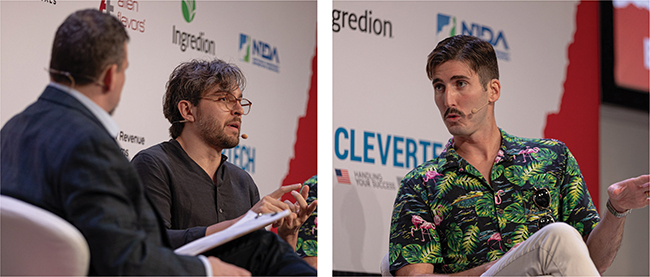BevNET Live Summer 2024 Recap
BevNET Live Summer 2024 took over the Metropolitan Pavilion in New York City with a wide range of discussions and insights shared by top players and key individuals in the beverage business. The conference brought everything from tactical discussions on navigating emerging challenges as a first-time entrepreneur, ways to embrace novel marketing opportunities, insight into the current climate for investment and much more.
The audience heard from a number of founders and CEOs, including Lemon Perfect’s Yanni Hufnagel, who came to the beverage business without ever having played the game — but with a background in coaching college basketball that helped prepare him to make tough calls at key moments that have allowed the business to keep going, he said during day one of BevNET Live.
Lemon Perfect has embraced plenty of risk in recent years and continues to grow. The brand managed to pivot from its original, refrigerated formulation that was merchandised in the produce set, to a shelf-stable liquid that now competes on the flavored water shelf. That wasn’t the only recent, monumental shift the brand has executed. After a “failed” launch at 7-Eleven in the greater Los Angeles area, Hufnagel said the team recognized that there was one big piece of the brand that was holding it back: its bottle size.
That pushed Lemon Perfect to go bigger. In November, the brand sized up its vessel from a 12 oz. slim plastic bottle to a 15.2 oz. container. The shift not only led to more value on the consumer end, Hufnagel noted, but higher dollar profits for the brand as well as its distribution and retail partners.
Following Hufnagel, Sans Bar founder Chris Marshall, Sechéy founder and chief curator Emily Heintz and Boisson CEO Nick Nodkins discussed the important role of independent brands and specialty retailers as the non-alcoholic beverage category matures. “You can buy cheese anywhere, but cheesemongers know what they are doing,” Marshall said while emphasizing there is a need for more informed and passionate consumer-facing individuals within both brands and bottle shops if the category is going to become mainstream.
On day two of the show, three BIPOC beverage founders and CEOs– Quentin Vinnie (Equitea), Pauline Idogho (Mocktail Club) and Karl Williams (Uncle Waithley’s) – spoke about how the institutional structures impeding Black and minority-owned companies can be used to create successful businesses.
The panel talked about how the barriers that have hindered members of the BIPOC community have instilled an engrained perseverance in how they approach entrepreneurship. The lack of investment flowing into minority-founded brands is a significant hurdle for BIPOC entrepreneurs, partially due to the “largely homogenous” makeup of venture capital firms, Williams said.
“That doesn’t necessarily mean that to better understand a Black deal, it has to be a Black person figuring it out,” he said. “But it certainly means that if you don’t have diverse perspectives in your organization, you miss opportunities.”
Later on, Aura Bora founder Paul Voge preached patience to beverage entrepreneurs seeking growth capital, equating the relationship between investors and brands to dating. “You don’t expect to get to know someone well on the first date,” he said. “This is the same thing. I’ve met a lot of founders that talk to investors for the very first time at the moment they’re raising money. They’re probably six to 12 months too late.”
This year’s BevNET Live summer conference concluded with a wide-ranging conversation on the future of cannabis drinks as it relates to the broader beverage industry.
Ian Dominguez, founder and CIO of cannabis investment group Delta Emerald Ventures, and Aaron Nosbisch, founder of infused beverage brand BRĒZ and social advertising platform LUCYD, discussed how the ascending hemp-derived category has succeeded in normalizing cannabis use across the country despite the increased regulatory scrutiny.
Yet, as hemp beverages have leveraged new distribution partnerships in bev-alc retailers and a booming direct-to-consumer market, policymakers are scrambling to find ways to regulate the category. Despite some regulatory hurdles, Dominguez said this was nothing new for seasoned cannabis investors like himself.
“From my perspective, I’ve been living in regulatory risk for my entire career. It’s part of the game,” he said.


Receive your free magazine!
Join thousands of other food and beverage professionals who utilize BevNET Magazine to stay up-to-date on current trends and news within the food and beverage world.
Receive your free copy of the magazine 6x per year in digital or print and utilize insights on consumer behavior, brand growth, category volume, and trend forecasting.
Subscribe


